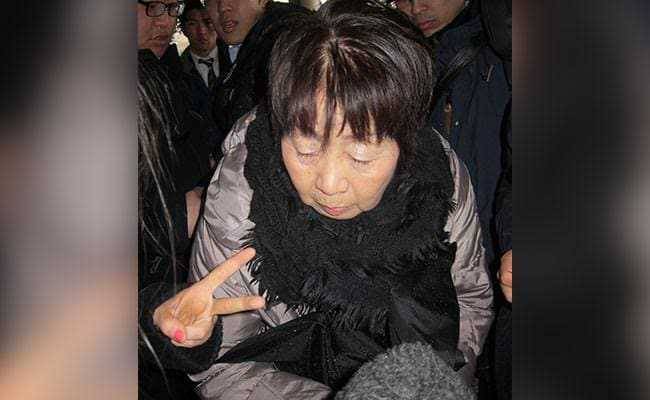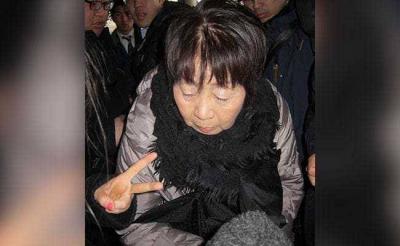The elderly Japanese woman, Shisako Kakehi, who killed three of her lovers and attempted to kill a fourth, is awaiting the death penalty after losing her last chance to appeal in court. According to CNN, the 74-year-old Kakehi was convicted of murdering three men with poison, while the fourth lover survived death. The Osaka High Court upheld the death sentence on Kakehi, who has become known as the "Black Widow," as she used cyanide to kill her wealthy, elderly partners in order to inherit from them and collect their life insurance money.
In the ruling issued in June, the judge stated: "Kakehi used a marriage agency to meet elderly victims to poison them one after the other after gaining their trust... This is a relentless crime based on clear and strong intent to kill." The serial killer managed to accumulate around one billion yen (approximately 8.8 million USD) over ten years, but later lost most of that fortune due to stock market speculations.
Little is known about this notorious woman in Japan; she was born in Saga Prefecture in the southwest of the country and worked in a printing workshop before marrying her first husband in 1969 at the age of 23. Her first marriage lasted 25 years until her partner passed away in 1994. By 2007, she entered a relationship with a 78-year-old man named Toshiaki Sudo. On December 18, 2007, Kakehi had lunch with Sudo and his children, where she took advantage of him taking dietary supplements in capsule form to slip cyanide into one of them.
Less than 15 minutes after lunch, Sudo fell unconscious, and by the time the ambulance arrived, he was gasping for breath. Kakehi accompanied him to the hospital but used a pseudonym when speaking to the medical staff, as the doctors found the elderly man was on the verge of death from choking. Court documents stated that Sudo was the only survivor among Kakehi's four victims, but he suffered from permanent functional impairment and vision loss, eventually dying a year and a half later from an unrelated illness.
Searching for a new victim, Kakehi met her next lover, Mayuzuri Honda, who was 71 in 2011. On March 9, 2012, after the "lovers" had been shopping, they parted ways. Around 5 PM that day, Honda lost consciousness while riding his motorcycle, and the hospital declared him dead two hours later. It appears the "Black Widow" had poisoned him in some food or drinks that day.
The third lover was 75-year-old Minoru Hyuki, who had recovered from lung cancer before meeting Kakehi and falling for her in July 2013. By August of that year, Hyuki emailed Kakehi expressing his desire to "stay with her forever." They became close, often dining together and spending nights at each other's homes. However, this "perfect romantic relationship" ended on September 20, when the couple went out for dinner. Here, Kakehi also took advantage of her elderly boyfriend taking health supplements in capsules to poison him.
Before finishing their meal, Hyuki lost consciousness, and when the ambulance arrived, he was gasping and breathing poorly. Despite having children, the "Black Widow" told the paramedics that he was alone and suffering from cancer. When they offered to resuscitate him with electric shocks, she refused for fear of harming his life, leading him to pass away two hours after arriving at the hospital.
In November 2013, just two months after Hyuki's death, Kakehi was involved with her last victim, Isu Kikihai. However, less than a month after their marriage, the "serial killer" was secretly dating another man, according to court documents. It appears Isu was no more fortunate than his predecessors, as his heart stopped shortly after dinner with his new wife, who called for an ambulance, but he died an hour after reaching the hospital.
Isu's death raised suspicions with the Japanese police, especially since two of Kakehi's lovers had died in the same manner. This prompted a lengthy investigation that uncovered the elderly woman's crimes and provided conclusive evidence leading to her confession. Despite her defense team’s attempts to prove that their client suffered from Alzheimer’s dementia, the court rejected these arguments and upheld her death sentence.




